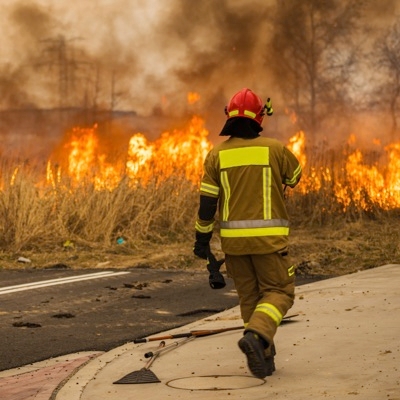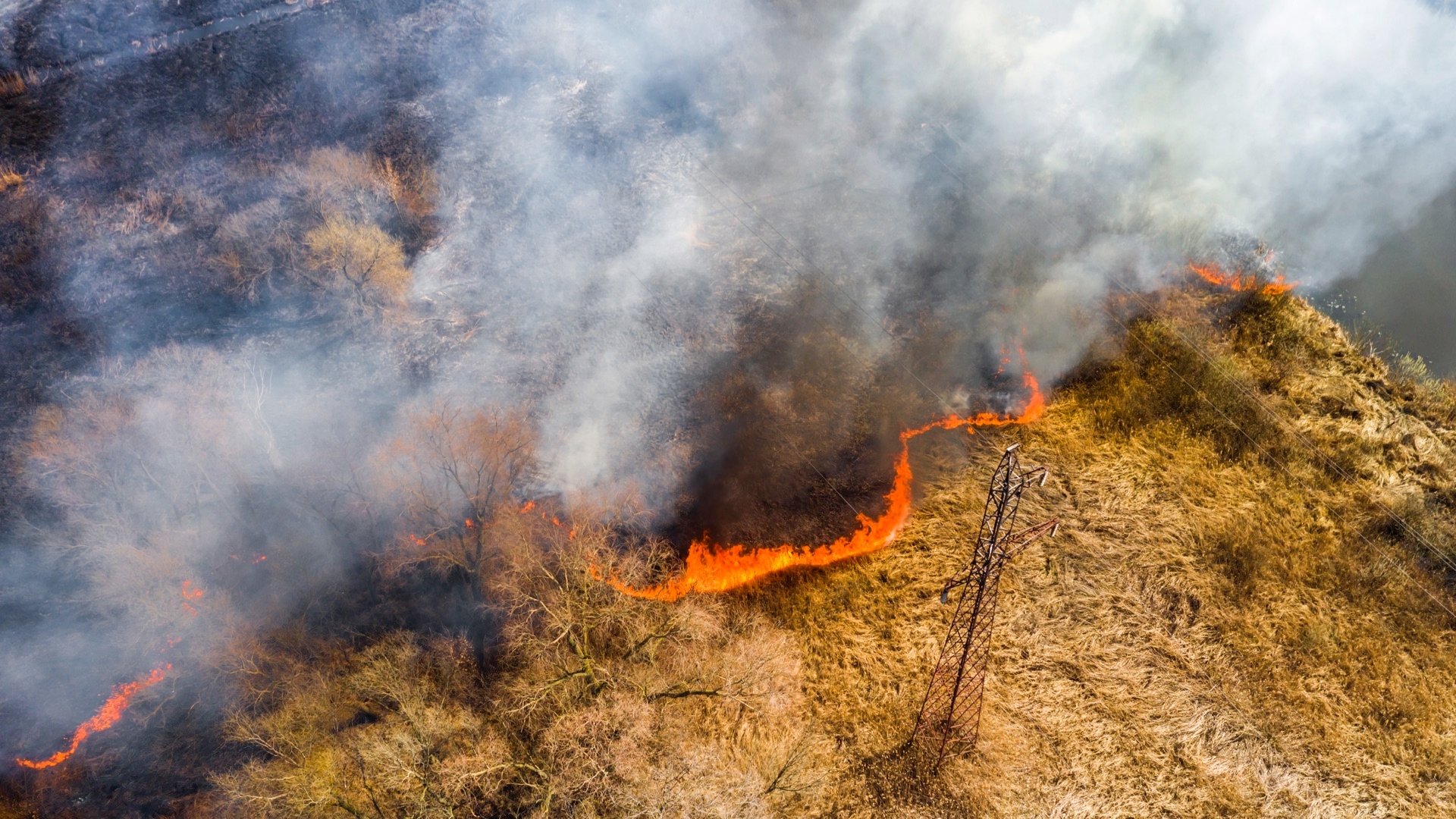Protect Your Pets From Wildfire Smoke:
Summary:
Your pets can be affected by wildfire smoke. If you feel the effects of smoke, they probably do, too! Smoke can irritate your pet's eyes and respiratory tract. Animals with heart or lung disease and older pets are especially at risk from smoke and should be closely watched during all periods of poor air quality.


Your pets can be affected by wildfire smoke. If you feel the effects of smoke, they probably do, too! Smoke can irritate your pet's eyes and respiratory tract. Animals with heart or lung disease and older pets are especially at risk from smoke and should be closely watched during all periods of poor air quality.
Know the Signs
If your animals have any of these signs, call your veterinarian:
- Coughing or gagging
- Red or watery eyes, nasal discharge, inflammation of throat or mouth, or reluctance to eat hard foods
- Trouble breathing, including open-mouth breathing, more noise when breathing, or fast breathing
- Fatigue or weakness, disorientation, uneven gait, stumbling
- Reduced appetite or thirst
Recommended Actions
Even if the fire danger is not imminent, high levels of smoke may force you to stay indoors for a long time or even evacuate. Reduce your pet's exposure to smoke as you would reduce your own.
Be prepared early by having an Evacuation Kit
Prepare a pet Evacuation Kit. Assemble the kit well before any emergency and store it in an easy-to-carry, waterproof container close to an exit.
- Food, water, and medicine for 7 to 10 days
- Sanitation and first aid supplies
- Important documents, such as identification papers including proof of ownership; vaccination records; medical records and medication instructions; emergency contact list, including veterinarian and pharmacy; and a photo of your pet (preferably with you)
- Travel supplies, such as crate or pet carrier labeled with your contact information; extra collar/harness with ID tags and leash; flashlight, extra batteries; and muzzle
- Comfort items, such as favorite toys and treats, and an extra blanket or familiar bedding
Before the fire season:
- Whether you have a central air conditioning system or a room unit, buy high-efficiency filters you can use to capture fine particles from smoke.
- Think about creating a clean room in your house with a portable air cleaner.
When smoke is present:
- Keep pets indoors as much as you can, with doors and windows closed. Bring outdoor pets into a room with good ventilation, like a utility room, garage, or bathroom. Move potentially dangerous products, such as pesticides, out of the reach of pets.
- Smoke is especially tough on your pet birds. Keep them inside when smoke is present.
- Keep indoor air clean: do not fry or broil foods, vacuum, burn candles, use a fireplace or woodstove, or smoke tobacco products. These activities add particles to your home.
- Spend less time outdoors and limit physical activities when it is smoky. For example, when it's smoky, it's not a good time for you and your pet to go for a run. Let dogs and cats outside for brief bathroom breaks if air quality alerts are in effect.
- Be ready to evacuate: Include your pets in your planning. Have each pet permanently identified, for example, with a microchip. Know where they will be allowed to go if there is an evacuation – not all emergency shelters accept pets. Know where your pets might hide when stressed, so you won't have to spend time looking for them in an emergency. Get pets used to their carriers and have your family practice evacuating with your pets. Covering carriers with a sheet during transport may calm a nervous pet.
If you must leave your pets behind, never tie them up!


